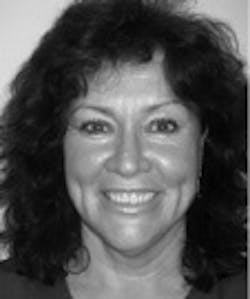Stupid is as stupid does...
Interacting with patients about oral health presents its challenges
Eileen Morrissey
Patients say the darnedest things. Being the consummate professionals that we are, our challenge is how to best respond to them. Last week I had two interactions that floored me, and I look back and wonder how I might have handled them more effectively.
The first patient had not been in my chair for 15 months. She has a history of disappearing. She presented with multiple areas of subgingival, proximal calculus, and I was not able to complete her care in one visit. I advised her that I would need to see her again, and she agreed. (She is not a candidate for scaling and root planing.) For the record, her primary interest is in how she can get her teeth whiter. My chart notes at her last appointment indicated that she was thinking about purchasing an automatic toothbrush. I asked if she had followed through, and she looked me squarely in the eye and stated, “No! It’s too messy, and it takes too long.”
It took everything I had not to shake her, but I calmly replied that the two-minute timer on automatic toothbrushes is, in my opinion, one of the reasons that they’re so advantageous. I told her that no matter what vehicle she used to brush her teeth, by not committing to a minimum of two minutes at least twice a day, she was contributing to the reason I would have to see her again.
I didn’t touch the “too messy” comment because at that point she was asking if we could get on with the appointment and was not receptive to further discussion. I wanted to tell her to simply take the auto-brush in the shower with her. Many of my Waterpik patients choose to use these when they shower, so why not an automatic toothbrush? If oral care in the shower bypasses the messiness roadblock, then I support it. Note to self to make that suggestion at this patient’s next visit.
Too much effort?
The second incident happened with a senior patient who has an extremely challenging personality. I see her every three months, and since I’m new to this office, I’m slowly working on building her trust. Due to her vertigo, I must work standing, with her seated upright. She will not permit the use of ultrasonics and refuses to allow periodontal charting. (Unbeknownst to her, I use the WHO probe and do PSR so that I can get some degree of assessment of her periodontal health.)
She has historically declined quadrant deep scaling but does have her teeth cleaned quarterly. I think this patient’s demands have been catered to, but I digress. Hand scaling with a compounded numbing gel keeps her comfortable during procedures. At her last visit, after I noted more bleeding during scaling than I prefer to see, I talked to her about the research that links inflammation in the mouth with Alzheimer’s. I sensed that she was taking notice.
Fast forward to last week’s visit, and Mrs. Difficult was not bleeding! Yes, there was work for me to do, but it was an absolute pleasure to debride her because of the decrease in bleeding, a huge contrast from what I’d experienced at her last visit. I sincerely believe it was my mention of the inflammatory link to systemic disease that made the difference in how she became motivated to take care of herself.
But that’s not all for today’s message. As I commented enthusiastically on the improvements in her mouth, she said, “Good! It was a lot more effort than I have any interest in keeping up with, and quite frankly, if you hadn’t said anything, I would have gone back to my old ways.”
I smiled with a sweet, fake smile, and said, “Yay for both of us!”
Talk about having the wind knocked out of my sails. I won’t report here what I wanted to say to her. I was simply glad that I had kept thorough chart notes, read them in advance, and was verbally enthusiastic regarding her efforts and the outcome. The message is, if you’re an RDH who types “exam, 4 BWs, adult prophy” (for example) and no more details, unless you have a superhuman memory, know that patients are often sitting there waiting for you to notice and comment positively on their increased efforts to improve.
If we don’t comment, they might just decide to bite their noses off to spite their faces. Yes, we all know it’s what some of them do. Onward we go; it is in our hearts’ core!
EILEEN MORRISSEY, RDH, MS, is a practicing clinician, speaker, and writer. She is an adjunct dental hygiene faculty member at Rowan College at Burlington County. Eileen offers CE forums to doctors, hygienists, and their teams. Reach her at [email protected] or 609-259-8008. Visit her website at www.eileenmorrissey.com.

